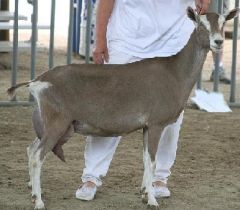![]()
![]()
![]()
Use LEFT and RIGHT arrow keys to navigate between flashcards;
Use UP and DOWN arrow keys to flip the card;
H to show hint;
A reads text to speech;
31 Cards in this Set
- Front
- Back
|
Theme
|
A unifying or dominant idea, motif, etc., as in a work of art.
|
|
|
Understatement
|
A figure of speech in which a writer or speaker deliberately makes a situation seem less important or serious than it is.
|
|
|
Metaphor
|
A figure of speech in which an implied comparison is made between two unlike things that actually have something in common.
|
|
|
Motivation
|
the act or an instance of motivating.
|
|
|
Diction
|
style of speaking or writing as dependent upon choice of words: good diction.
|
|
|
Onomatopoeia
|
the formation of a word, as cuckoo or boom, by imitation of a sound made by or associated with its referent.
|
|
|
Oxymoron
|
a figure of speech by which a locution produces an incongruous, seemingly self-contradictory effect, as in “cruel kindness” or “to make haste slowly.”
|
|
|
Paradox
|
a statement or proposition that seems self-contradictory or absurd but in reality expresses a possible truth.
|
|
|
Ode
|
a lyric poem typically of elaborate or irregular metrical form and expressive of exalted or enthusiastic emotion.
|
|
|
Personification
|
is giving human traits to non-living objects
|
|
|
Point of view
|
the position of the narrator in relation to the story, as indicated by the narrator's outlook from which the events are depicted and by the attitude toward the characters.
|
|
|
Antagonist
|
a person who is opposed to, struggles against, or competes with another; opponent; adversary.
|
|
|
Antihero
|
a protagonist who lacks the attributes that make a heroic figure, as nobility of mind and spirit, a life or attitude marked by action or purpose, and the like.
|
|
|
Apostrophe
|
a digression in the form of an address to someone not present, or to a personified object or idea, as “O Death, where is thy sting?”.
|
|

Colloquialism
|
a word or phrase appropriate to conversation and other informal situations (y’all etc.)
|
|
|
Aphorism
|
A short saying embodying a general truth, or smart observation, as “Power tends to corrupt, and absolute power corrupts absolutely”.
|
|
|
Sonnet
|
A poem of fourteen lines that follows a strict rhyme scheme and specific structure.
|
|
|
Protagonist
|
The leading character, hero, or heroine of a drama or other literary work.
|
|
|
Allusion
|
a passing or casual reference; an incidental mention of something, either directly or by implication: an allusion to Shakespeare.
|
|
|
Symbol
|
A person, place, action, or thing that (by association, resemblance, or convention) represents something other than itself.
|
|
|
Pun
|
the humorous use of a word or phrase so as to emphasize or suggest its different meanings or applications, or the use of words that are alike or nearly alike in sound but different in meaning; a play on words.
|
|
|
Satire
|
In satire, vices, follies, abuses, and shortcomings are held up to ridicule, ideally with the intent of shaming individuals, and society itself, into improvement.
|
|
|
Pastoral
|
a poem, play, or the like, dealing with the life of shepherds, commonly in a conventional or artificial manner, or with simple rural life generally
|
|
|
Connotation
|
refers to the associations that are connected to a certain word or the emotional suggestions related to that word. The connotations for the word snake could include evil or danger.
|
|
|
Rhetorical question
|
a question asked solely to produce an effect or to make an assertion and not to elicit a reply.
|
|
|
Hyperbole
|
an extravagant statement or figure of speech not intended to be taken literally, as “to wait an eternity.”
|
|
|
Irony
|
The use of words to convey a meaning that is the opposite of its literal meaning: the irony of her reply, “How nice!” when I said I had to work all weekend. An outcome of events contrary to what was, or might have been, expected.
|
|
|
Denotation
|
the literal meaning of a word, the "dictionary definition."
|
|
|
Flashback
|
a shift in a narrative to an earlier event that interrupts the normal chronological development of a story.
|
|
|
Foreshadowing
|
to show or indicate beforehand
|
|
|
Stereotype
|
simplified conceptions of groups based on some prior assumptions (black people like KFC etc.)
|

